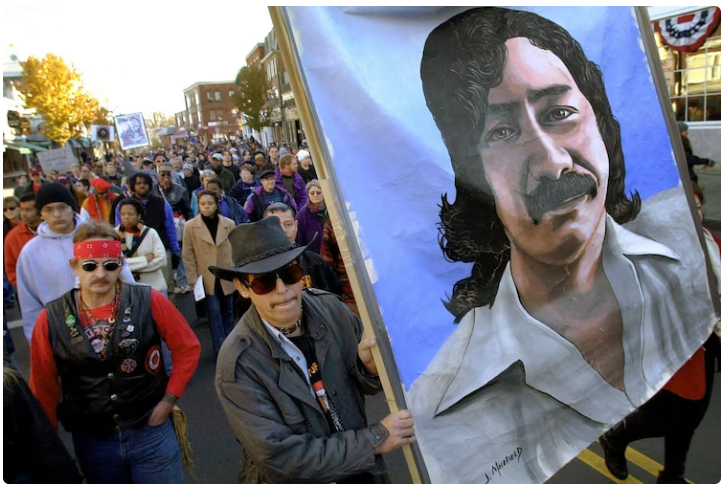President Joe Biden has faced criticism after commuting the sentence of Leonard Peltier, an 80-year-old Native American activist who has spent nearly 50 years in prison. Peltier was convicted for the 1975 murders of two FBI agents, Jack Coler and Ronald Williams, on South Dakota’s Pine Ridge Reservation. Despite his conviction, Peltier has maintained his innocence. The commutation, issued just before Biden left office, will allow Peltier to serve the remainder of his sentence under home confinement, but it does not pardon him for the murders.
Peltier’s case has been controversial for decades, with many advocating for his release, citing allegations of prosecutorial misconduct and constitutional violations during his trial. In contrast, law enforcement officials, including former FBI Director Christopher Wray, have strongly opposed clemency, arguing that Peltier’s actions, including the murder of two FBI agents and his violent escape from prison, demonstrate a lack of remorse. Wray described Peltier as a “remorseless killer” and urged Biden to refrain from granting any form of relief, warning that such a move would undermine justice and accountability.
Peltier’s health has deteriorated over the years, and his supporters, including Amnesty International and various Indigenous groups, have long campaigned for his release, citing human rights concerns surrounding his trial. Some former officials, including former U.S. Attorney James Reynolds and the judge who oversaw Peltier’s 1986 appeal, have also expressed support for his release. In 2023, dozens of members of Congress joined the call, citing the alleged misconduct in the case.
While some view Biden’s decision as an unjustified betrayal to the victims’ families, others, including Peltier’s legal team, argue that new evidence would likely prevent a conviction if the case were tried today. The decision to commute his sentence has sparked significant debate on the balance between justice, accountability, and human rights.


